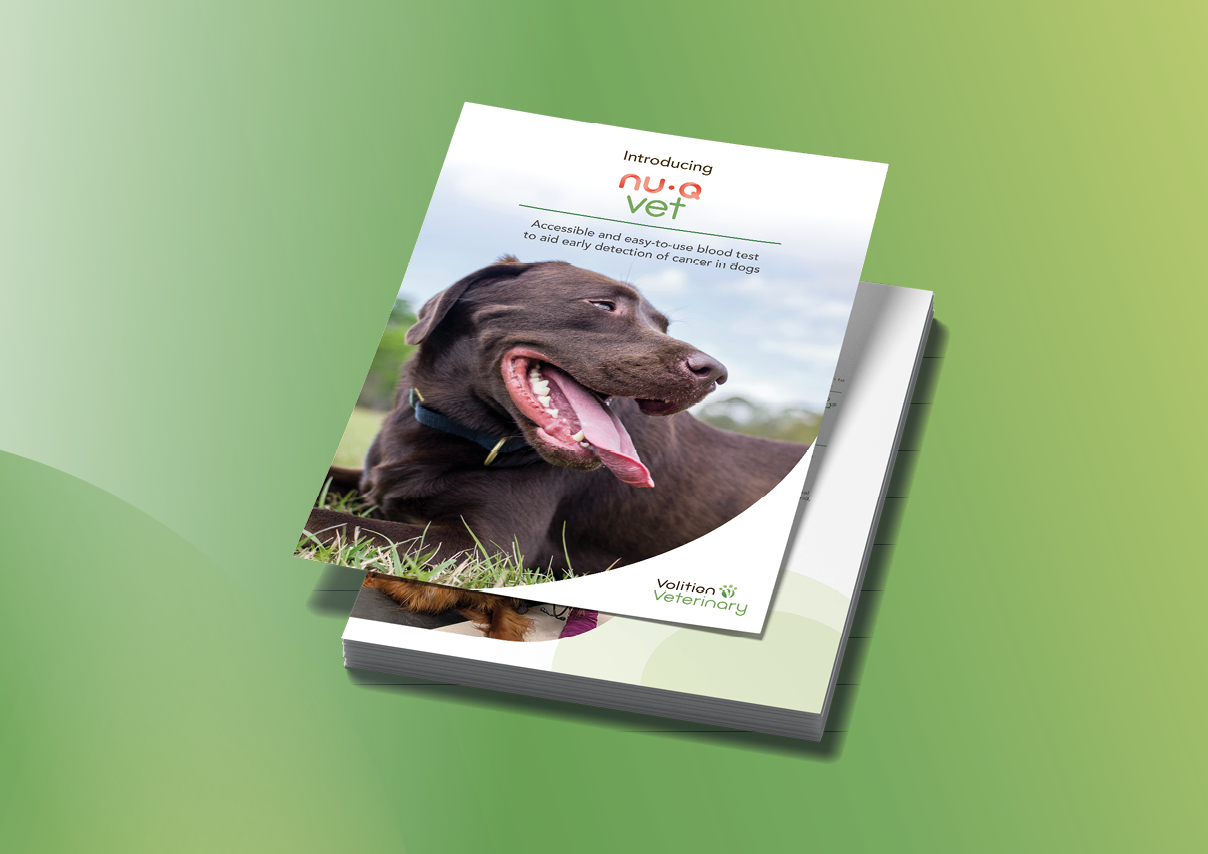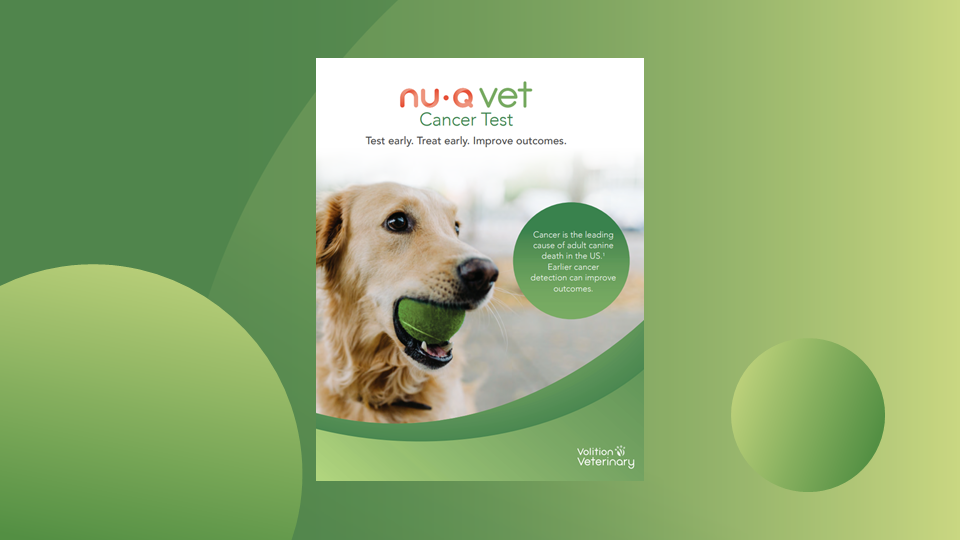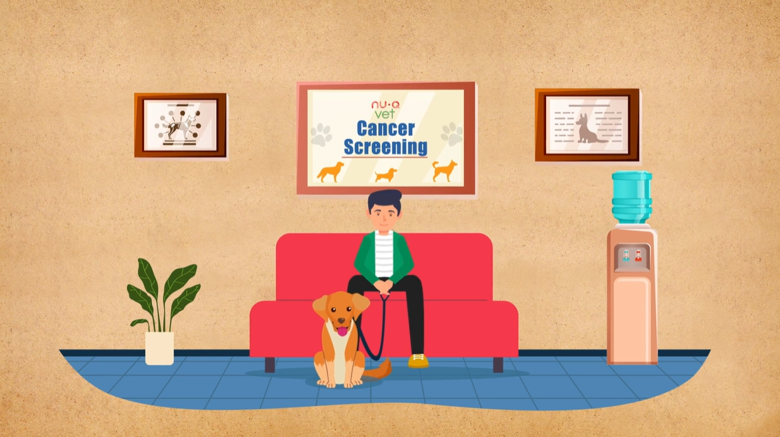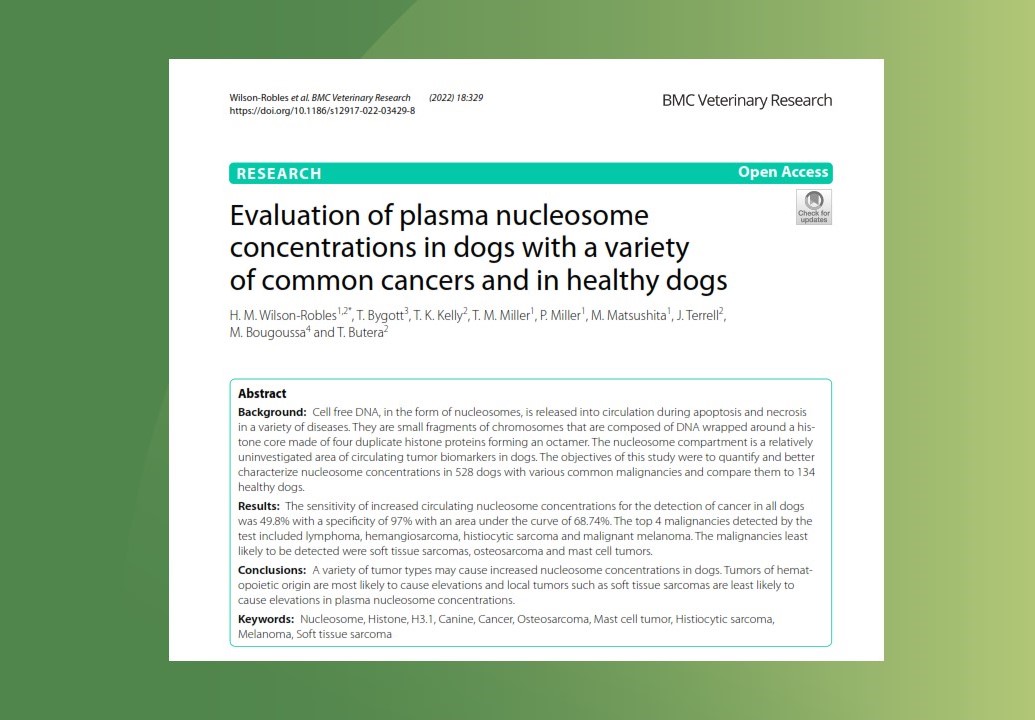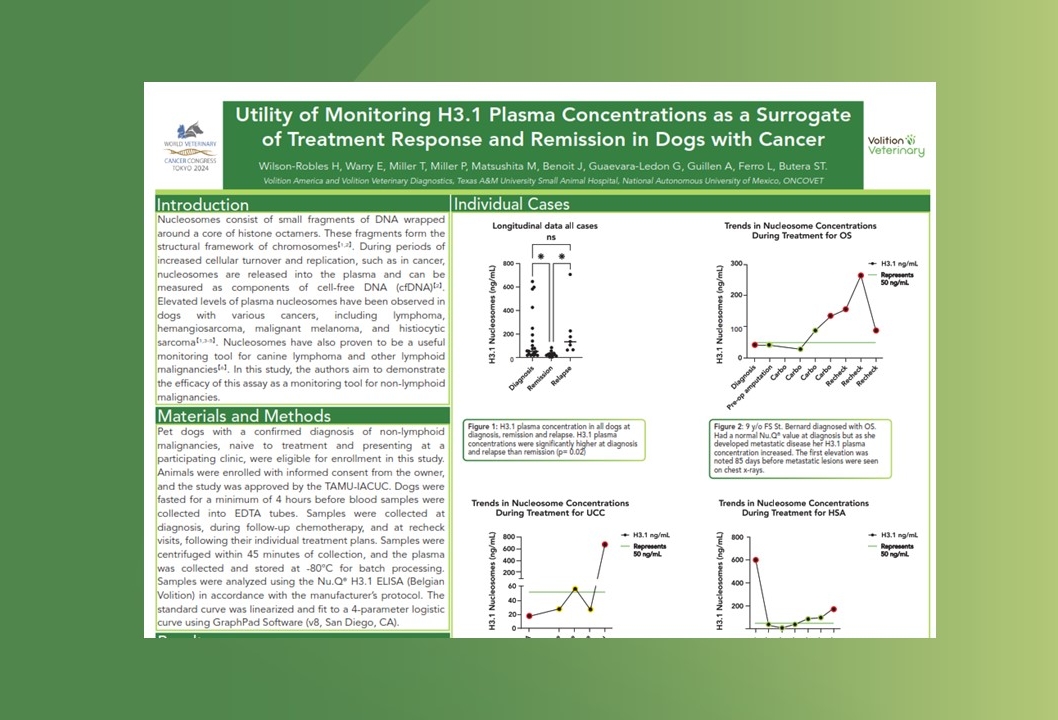-
Nu.Q® Technology
Our technology detects characteristic epigenetic changes in nucleosomes that occur from the earliest stages of cancer, sepsis and other diseases.
-
- Our Tests
- Human Health
-
Nu.Q® NETs
Nu.Q® NETs is a groundbreaking CE-marked diagnostic solution that clinicians can use to detect NETosis.
-
Nu.Q® Discover
Buy our Nu.Q® Discover H3.1 Research Use Only Assay
- Animal Health
-
Nu.Q® Vet Cancer Test
Nu.Q® Vet Cancer Test is an affordable, accessible blood test that detects cancer in dogs.

A simple blood test to aid early detection of cancer in dogs.
Nu.Q® Vet Cancer Test
Earlier detection can improve outcomes.
Cancer is the most common cause of death in dogs over the age of 2 years in the US.
Earlier cancer detection can improve outcomes. It can also improve the quality of life of the dog and its owner.
Yet, as of today, there are few single assay cancer blood tests on the veterinary market. Currently, dogs are usually diagnosed when they are unwell or there is a suspicion of cancer. Even then, dogs suspected of having cancer are required to undergo a variety of diagnostic tests that may be expensive, time consuming, and painful for the animal.
We hope to change this with the introduction of the Nu.Q® Vet Cancer Test.
It is estimated that 50% of all dogs over the age of 10 will develop cancer in their lifetimes.
There are an estimated 6 million pet dogs diagnosed with cancer each year.
Why is testing so important?
Screening refers to tests performed on healthy, asymptomatic patients who have disease but do not yet have symptoms.
Screening is the first step in catching disease early, and allows for better treatment outcomes. As cancer develops in the body, screening also plays an important part in identifying it sooner before it has spread or metastasized.
The Nu.Q® Vet Cancer Test turns ‘early diagnosis’ from a daunting task to a meaningful conversation between vets and pet parents.

Veterinarian and founder, Coral Way Animal Clinic, Miami, Florida
Our Solution
Introducing Nu.Q® Vet Cancer Test.
The Nu Q® Vet Cancer Test was developed with the goal of providing an accessible and affordable screening test to aid in early detection.
This test can be easily integrated into preventive care programs and used alongside other routine bloodwork during regular wellness visits.
It’s a simple, easy to use screening blood test recommended for older dogs (7 years and older) and those breeds at increased risk of developing cancer in their lifetimes (from 4 years).
The Nu.Q® Vet Cancer Test is now available in the United States, Europe, Australia and Asia.
Any questions? Read our FAQs

Brochures & Clinical Papers
Contact Nu.Q® Vet Team
Modal Contact Form (Vet)
"*" indicates required fields






